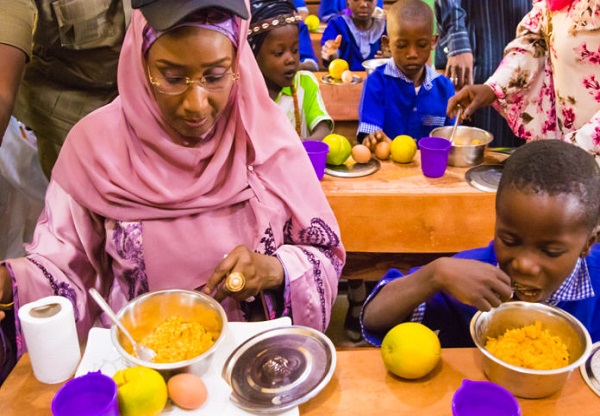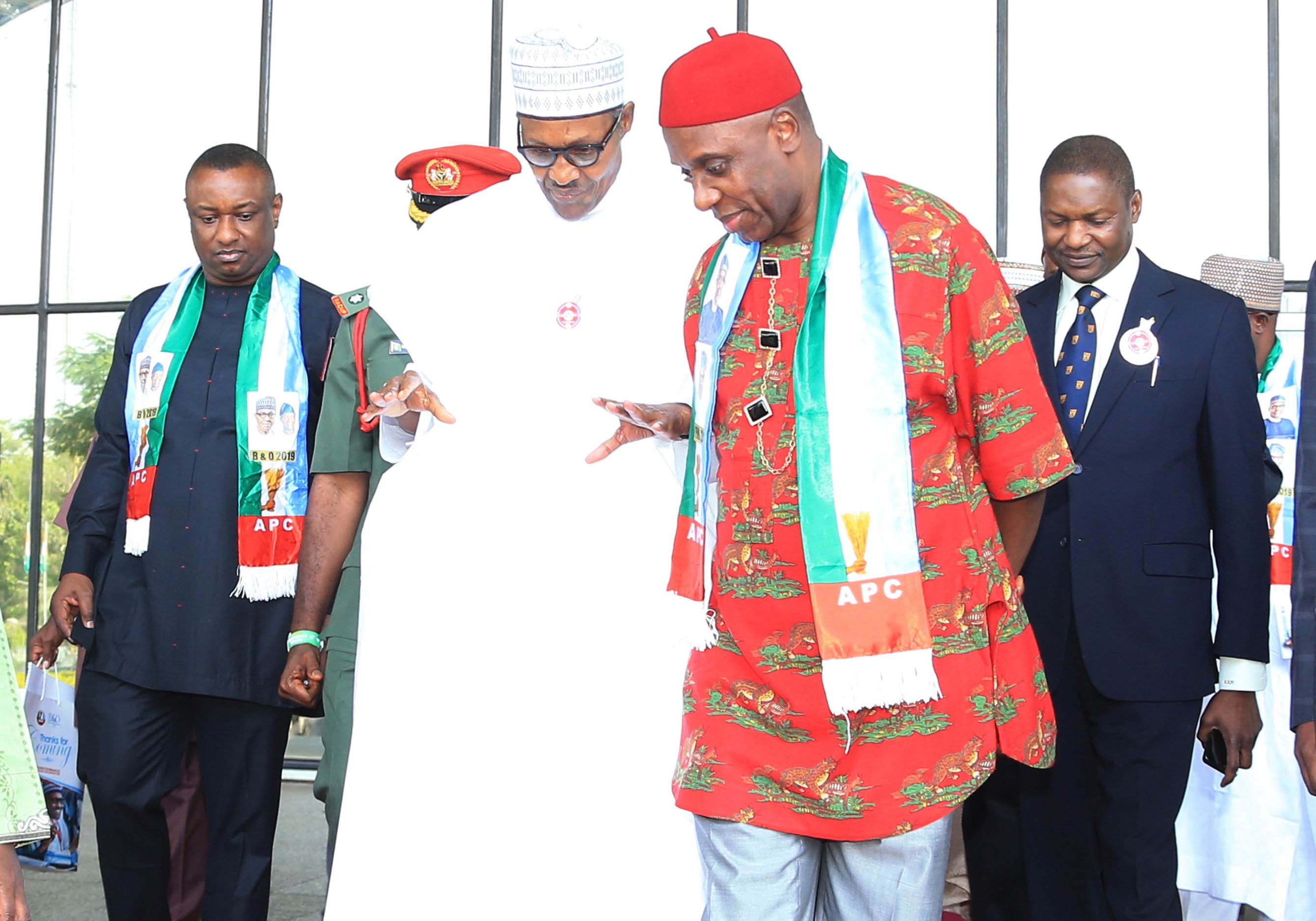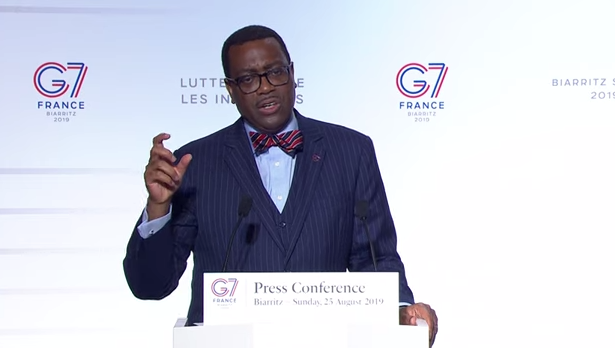Two major news reports caught my attention in these last few weeks. The first was the call on Nigerian researchers to start applying for N7.5bn approved by President Muhammadu Buhari for the 2020 National Research Fund (NRF) Grants circle. The second has to do with the amount of money that the Nigerian government is spending on feeding its 3,131,791 pupils in primary 1-3 just in this period of lockdown.
The Executive Secretary of the Tertiary Education Trust Fund (TETFUND) Prof Suleiman Elias Bogoro, had released a guideline for accessing the N7.5bn grants meant for researchers in public universities, polytechnics and colleges of education in the country. To put this in perspective, this grant is for the benefit of all researchers in Nigeria’s over 200 public institutions. Available data shows that Nigeria has 43 federal universities; 52 state universities; 70 federal and state polytechnics; and 21 federal and 49 colleges of education.
In fairness to President Buhari, this year’s research grant is much more than what was budgeted for the same purpose in 2019 which was N3.9bn.In fact, this year’s budget is almost 50 per cent above that of 2019. TETFUND has said that application for the grant will close on July 21 this year.
On the school feeding programme, Minister of Humanitarian Affairs, Disaster Management and Social Development, Sadiya Umar Farouq, said the Federal Government would be spending approximately N13.1bn to feed children in Nigeria’s 36 states and the Federal Capital Territory. She put the cost of each food pack at N4, 200. Going by the minister’s explanation, this amount covers home feeding in lockdown. In other words, the amount has nothing to do with what will be expended when these children go back to school. To her, the home feeding programme is government’s own way of supporting families with young children who are facing hunger. She had said, “COVID- 19 has clearly highlighted that people are having to make a choice between staying safe at home and staying hungry. Our goal is to try to support these families so that they do not have to make that difficult and terrible choice.”
While this piece is not aimed at undermining the importance of school feeding programme, which has proved to be a vital nutrition support to children all over the world, still I am amazed that a country could conveniently budget a paltry sum for research across its 215 public tertiary institutions for a whole year and spend a whopping N13.1bn on one-off meal packs for less than 2% of her population in one month. We talk about Nigeria needing institutions that could produce cutting edge Artificial Intelligence (AI) applications for education, business, medicine and security among others, I just wonder how much of cutting edge AI we can possibly get from this kind of budget.
Advertisement
Justifying the home feeding programme, the Minister of Humanitarian Affairs has told us that 17 countries including Liberia and South Africa have adopted the use of Take-Home ration in response to COVID-19. She also says the programme is endorsed by the World Food Programme. She is right. School meals are being repackaged for pupils in Colombia. Also, Guatemala, Sierra Leone and the likes have also adopted the policy. However, what the minister has not told Nigerians is that food distribution in these countries is being handled either solely by the World Food Programme, which is a reputable global humanitarian body, or in collaboration with the private sector in those countries. For example, the WFP independently manages resources from the Liberian Government’s COVID-19 Household Food Support Program (COHFSP) budget, and not the Government managing the resources. Besides, the project is jointly funded by both the Liberian government and the World Bank. Both China and South Africa are also working with the private sector on the project.
Perhaps, the cost of providing this lifesaving intervention could have been lower and probably yielded better results, if it had been done in line with international standards of aid delivery. At least, there would have been more transparency. Unfortunately, up till now, many Nigerians are still looking for the beneficiaries of the home feeding programme. People will tell you that they have kids in public schools that should have benefited from this intervention if it actually took place. I learnt the food packs were handed over to head teachers for onward delivery to the children’s parents. We know that this kind of distribution channel could be fraught with challenges, especially in a country like ours where corruption thrives. No one can guarantee that those packs will reach their final destinations. No wonder many are still asking when, where and how the food packs were distributed.
It’s baffling to me how Nigeria eagerly dishes out money for food and suddenly becomes a miser when confronted with important issues like research activities. The country won’t get anywhere with this “chop-chop” approach to solving serious problems. We have to deliberately reduce wastage and monitor government spending in order to have more resources for important things. Imagine approving N37bn for the renovation of the National Assembly complex and voting N7.5bn for research. Yet we want these universities to solve all the problems under the sun. Some people in government have even challenged them to provide solutions to peculiar health issues in Africa like sickle cell anaemia, fibroid and all kinds of things. We are fond of talking about the place of innovations and inventions in development. Is this how to get there?
Advertisement
Anyone that has ever visited a university in any developed country will weep for Nigeria. Granted that we cannot compare ourselves with some of these universities since many are probably older than Nigeria, this is still not an excuse for us to be going backward when the rest of the world is moving forward. The United Arabs Emirate was formed years after Nigeria’s independence. Everyone can see the progress being made there in the area of innovation and technology. The emirate is well positioned to transit to a knowledge –based economy. Nigeria should not be budgeting less than N10bn for research when countries across the globe are investing in the next generation of faculty and research.
This year alone, Microsoft has awarded two new grants totalling $930,000 to the California State University. The fund is just one of the firm’s numerous contributions to the university. But, here we are allocating N311.2bn to 43 federal universities in the country.
Where are the companies in Nigeria? What impact are they making on our educational systems? Some of these multinationals prefer to sponsor entertainment projects than to invest in our educational institutions. Can we really blame them? They have seen that as a nation and as a society, we are not placing a high premium on education and research. So, they too, have learnt to focus on what matters to us. Basically, Nigeria’s salvation has to come from within her. There is no point looking up to anyone out there for help. Nigeria must help herself.
Nigeria has refused to invest in its students, faculties, infrastructure, instructional equipment, supplies and utilities. The little money that is available for infrastructure is not well monitored. So we have universities that don’t have ordinary toilet facilities. To make progress, we have to change our penchant for thinking upside down.
We should work towards providing holistic solutions to our problems. Why, for instance, are our own universities not generating funds internally? This is what happens all over the world. In many countries, universities are funded via tuition, government subvention, grants and internally-generated revenue. These are some of the funds used for Research and Development in these institutions. Generally, our tertiary institutions don’t like to talk about their internally generated revenue. Some state universities do, but the federal ones rarely want to touch the area. Agreed, government funding is meagre, but we have to change the narrative. As it is, there is a need for urgent paradigm shift. Both the government and our tertiary institutions may have to come up with alternative means of funding our institutions. Maybe our universities should also consider forming partnership with one another in the area of research and innovation.
Advertisement
Deji-Folutile is the editor-in-chief, Franktalknow.com and member of the Nigerian Guild of Editors. Email: [email protected]
Views expressed by contributors are strictly personal and not of TheCable.
Add a comment







